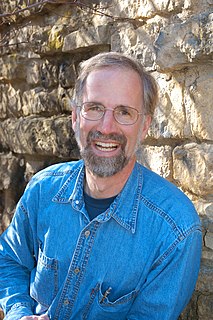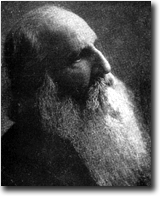A Quote by Marcus Tullius Cicero
That is probable which for the most part usually comes to pass, or which is a part of the ordinary beliefs of mankind.
Related Quotes
By seeing the otherness in that which is most unfamiliar, we can learn to see it too in that which at first seemed merely ordinary. If wilderness can do this - if it can help us perceive and respect a nature we had forgotten to recognize as natural - then it will become part of the solution to our environmental dilemmas rather than part of the problem.
It is not the willingness to kill on the part of our soldiers which most concerns me. That is an inherent part of war. It is our lack of respect for even the admirable characteristics of our enemy; for courage, for suffering, for death, for his willingness to die for his beliefs, for his companies and squadrons which go forth, one after another, to annihilation against our superior training and equipment.
For the most part, people think in ordinary life without bringing order into their thoughts. The guiding principles and epochs of human development and planetary evolution, the great viewpoints which have been opened by the initiates, bring thought into ordered forms. All of this is a part of Rosicrucian training. It is called the Study.
There are many beliefs that we have seen as truth in Western civilization for hundreds of years. We live according to these "truths" and as a result manifesting a life using those beliefs, which can be very self-destructive. So these beliefs will affect decisions in economics and politics and everything else that we do. One myth-perception is our continued emphasis of a Newtonian materialistic world, which by definition emphasizes the primacy of matter and somewhat ignores or minimizes the influence of the immaterial part of the universe.
Which class is happiest, the rich, the middle class or the poor? A very successful executive of a large organization touches upon this vital subject in a long letter to all his salesmen. He uses as his text a passage from Robinson Crusoe which included this: ""My Father bid me observe it, and I should always find that the calamities of life were shared among the upper and lower part of mankind; but that the middle station had the fewest disasters, and were not exposed to so many vicissitudes as the higher or lower part of mankind.
Well, there is a contradiction in a sense. If you're making commercials which sell products which are unhealthy or which are unnecessary, I think that you are part of a system - I am part of a system which encourages people to buy things and do things which are not to their best interest. And to that extent you could say it was contradictory.
It is alone that part of the external universe which we call material which acts on man through his senses - that part of which we ordinarily feel our knowledge to be the surest; but in reality, strangely enough, as will soon appear, this is one of the aspects of the external world, of which we can know nothing.
The Spirit of Enterprise, which characterizes the commercial part of America, has left no occasion of displaying itself unimproved. It is not at all probable that this unbridled spirit would pay much respect to those regulations of trade by which particular States might endeavor to secure exclusive benefits to their own citizens.
My accident was the result of incredible fate, with me spinning in a place I shouldn't have, with a car coming at a speed it shouldn't have, and hitting me with the sharpest and strongest thing that it has, which is the nose, in the most vulnerable part of the car, which is between the side part and the front wheel.
There was another thing I heartily disbelieved in - work. Work, it seemed to me even at the threshold of life, is an activity reserved for the dullard. It is the very opposite of creation, which is play… The part of me which was given up to work, which enabled my wife and child to live in the manner which they unthinkingly demanded, this part of me which kept the wheel turning - a completely fatuous, ego-centric notion! - was the least part of me. I gave nothing to the world in fulfilling the function of breadwinner; the world exacted its tribute of me, that was all.












































